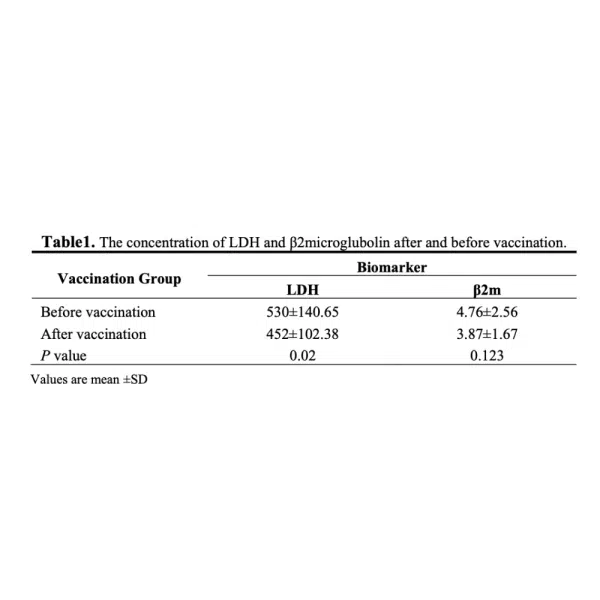Leukaemia, a type of blood cancer, is a condition that affects the bone marrow and results in the abnormal production of white blood cells. It is a diverse and complex disease that requires a comprehensive understanding to effectively diagnose and treat.






Blood cancer, also known as hematologic cancer, is a type of cancer that affects the production and function of blood cells in the body. There are three main types of blood cancer: leukemia, lymphoma, and myeloma. These cancers can be aggressive and difficult to treat, but with advances in medical technology and research, there are options for treatment and management.
According to the American Cancer Society, it is estimated that 194,000 people in the United States will be diagnosed with blood cancer in 2023, and about 60,000 people will die from the disease. Blood cancer accounts for about 10% of all new cancer cases each year. The incidence of blood cancer varies by type, with leukemia being the most common, followed by lymphoma and myeloma. Men are slightly more likely than women to develop blood cancer, and the risk of the disease increases with age.
Blood cancer develops when abnormal cells in the blood or bone marrow grow uncontrollably, disrupting the normal production and function of blood cells. The exact causes of blood cancer are unknown, but there are certain risk factors that can increase a person’s likelihood of developing the disease.
Some risk factors for blood cancer include exposure to certain chemicals, radiation, certain viral infections, and genetic factors. For example, exposure to benzene, a chemical found in gasoline and other industrial products, has been linked to an increased risk of developing certain types of blood cancer. Certain viral infections, such as the Epstein-Barr virus and human T-cell lymphotropic virus, have also been linked to an increased risk of blood cancer. Additionally, certain genetic mutations can increase a person’s risk of developing blood cancer.
It’s important to note that while some risk factors for blood cancer are known, many people who develop the disease do not have any known risk factors. Research into the causes of blood cancer is ongoing, and it is hoped that this research will lead to a better understanding of the disease and improved treatment options.
The chances of recovery from blood cancer depend on several factors, including the type of cancer, the stage of the disease, and the patient’s overall health. Treatment options for blood cancers have improved over the years, with many patients now achieving remission or extended periods of disease control. Common treatment options for blood cancers are chemotherapy, radiation therapy, stem cell transplantation, and targeted therapy. The choice of treatment depends on the type and stage of the cancer, as well as the patient’s overall health and personal preferences.
Natural immunotherapy using umbilical cord blood is an innovative approach that has shown great promise in the treatment of blood cancer. This type of therapy involves using stem cells found in umbilical cord blood to rebuild the patient’s immune system.
The umbilical cord blood contains a high concentration of stem cells, which are immature cells that can develop into different types of blood cells. These stem cells are particularly useful for treating blood cancer because they can help to regenerate the patient’s immune system and replace cancerous cells.
Immucura also offers this type of therapy. Umbilical cord blood from newborn babies is collected and used it to create customized treatments for patients with blood cancer. The process begins by analysing the patient’s immune system and identifying any weaknesses or abnormalities. Based on this analysis, Immucura can create a personalized treatment plan that is tailored to the individual needs of the patient.
This type of therapy has been shown to be particularly effective in patients with leukemia, lymphoma, and other types of blood cancer.
One of the advantages of using umbilical cord blood for this type of therapy is that it is a non-invasive and painless procedure. This makes it a safe and effective option for patients who are not able to tolerate more aggressive treatments.
Overall, natural immunotherapy using umbilical cord blood is a promising new approach to the treatment of blood cancer. Immucura is at the forefront of this technology, offering personalized treatments that can help patients to rebuild their immune systems and fight off cancerous cells. With further research and development, this type of therapy may become a standard part of the treatment regimen for blood cancer patients.
Here you can read a testimonial of an Immucura’s patient that was treated with Dentritic Cell Therapy in combination with Umbilical Cord Blood:
This statement was given by a family member of the patient:
“We thank you for all your support during these trying times. We are impressed and reassured of your method and I will personally spread the word. So many lives could be saved!”
I did not have any side effects at all and now I feel much better now, I am alert physically. The team is fantastic, everybody is there to help with everything required.
I would suggest it to anybody, try immunotherapy, it worked for me. I am still alive after three years.
© 2025 Immucura. All Rights Reserved
Loading: Please wait…
Loading form: Please wait…
Loading: Please wait…
Loading form… Please wait…
Loading form: please wait…